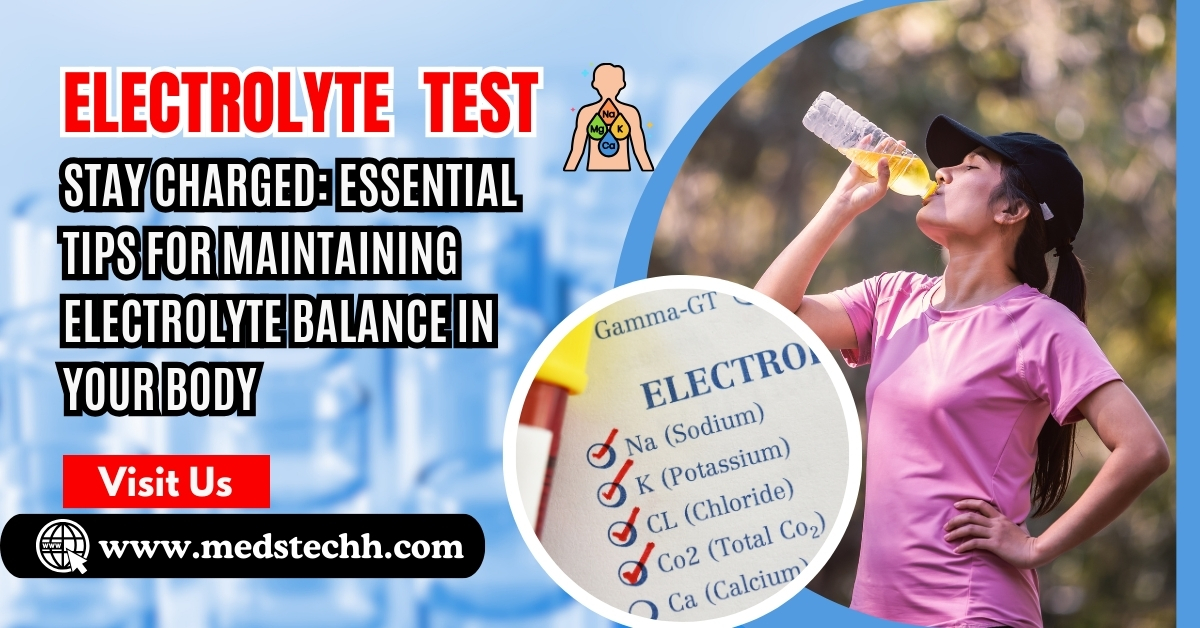Introduction:
Now in today’s fast world, maintaining good health is paramount. One crucial aspect of overall health is the proper functioning of the thyroid gland. The thyroid gland, located in the neck, plays a pivotal role in regulating various bodily functions through the hormones it produces. Understanding thyroid function tests (TFTs) is essential for diagnosing and managing thyroid-related issues effectively.
Hormones Produced by the Thyroid Gland?
The thyroid gland primarily produces two hormones:
- Thyroxine (T4).
- Triiodothyronine (T3).
Additionally, it secretes a hormone called calcitonin, which helps regulate calcium levels in the blood.
What is a Thyroid Function Test (TFT)?
A TFT is a series of blood tests used to assess the function of the thyroid gland. These tests measure the levels of thyroid hormones and thyroid-stimulating hormone (TSH) in the blood, providing valuable insights into thyroid health.
Profile of Thyroid Function Test:
- TSH Test (Thyroid-Stimulating Hormone): TSH, produced by the pituitary gland, acts as a messenger to stimulate the thyroid gland to produce T3 and T4. It plays a crucial role in regulating thyroid hormone levels, with its secretion tightly controlled by feedback mechanisms involving T3 and T4 levels in the bloodstream.
- T4 Test (Thyroxine): T4 is another important thyroid hormone produced by the thyroid gland. While T4 itself is relatively inactive, it serves as a precursor to T3, which is the more biologically active form. Conversion of T4 to T3 occurs primarily in peripheral tissues and is essential for maintaining metabolic balance.
- T3 Test (Triiodothyronine): T3 is the active form of thyroid hormone responsible for regulating metabolism. It plays a crucial role in controlling the body’s energy production and utilization, impacting factors such as weight management, mood, and cognitive function.
Main Functions of Thyroid Hormones:
- Metabolism Regulation:
- Thyroid hormones play a crucial role in regulating metabolism, which is the process by which the body converts food into energy. They help control the rate at which the body burns calories and affects weight, energy levels, and body temperature.
- Growth and Development:
- Thyroid hormones are crucial for typical growth and development, especially in children. They influence the development of the brain, bones, and muscles, and regulate the production of other hormones throughout life.
Additional Tests:
- Thyroid Antibody Tests: These tests help diagnose autoimmune thyroid conditions such as Hashimoto’s thyroiditis and Graves’ disease.
- Thyroid Ultrasound: Used to assess the size and structure of the thyroid gland and detect any abnormalities such as nodules or tumors.
Thyroid Disorders:
- Hypothyroidism: Occurs when the thyroid gland doesn’t produce enough T3 and T4 hormones. Signs and symptoms might encompass exhaustion, increased body mass, bowel irregularity, low mood and sensitivity to cold.
- Hyperthyroidism: Happens when the thyroid gland produces too much T3 and T4 hormones. Symptoms may include weight loss, rapid heart rate, anxiety, tremors, sweating, and heat intolerance.
Symptoms and Signs Thyroid Disorders:
- Fatigue: Feeling tired or exhausted even after adequate rest.
- Weight Changes: Gaining weight or losing weight unexpectedly.
- Changes in Heart Rate: Irregular heartbeats or palpitations.
- Mood Swings: Anxiety, depression, or irritability.
- Changes in Bowel Habits: Constipation or diarrhea.
- Hair and Skin Changes: Dry skin, brittle nails, or hair loss.
- Menstrual Irregularities: Changes in the menstrual cycle for women.
- Muscle Weakness: Weakness or tremors in the muscles.
Less Common Symptoms:
- Swelling of the Neck: Enlargement of the thyroid gland (goiter).
- Hoarseness: Changes in voice quality.
- Difficulty Swallowing: Feeling of a lump in the throat (dysphagia).
Causes of Thyroid Disorders:
- Autoimmune Conditions: Like Hashimoto’s thyroiditis and Graves’ disease.
- Iodine Deficiency: Lack of sufficient iodine in the diet can lead to thyroid problems.
- Stress Response: Chronic stress from depression and anxiety can trigger the release of cortisol, which may interfere with thyroid function.
- Genetic Factors: Family history of thyroid disorders.
- Thyroid Nodules or Tumors: Benign or malignant growths in the thyroid gland.
- Medications: Some medications have the potential to disrupt thyroid function.
- Radiation Exposure: Radiation therapy to the neck or head area.
Risk Factors:
- Gender: Females are more susceptible to thyroid disorders than males.
- Age: Thyroid disorders tend to be more prevalent in older adults.
- Family History: A family history of thyroid problems increases the risk.
- Pregnancy: Pregnancy-related hormonal changes can affect thyroid function.
- Iodine Intake: Inadequate iodine intake or excessive iodine consumption can be risk factors.
Main Purposes of TFT Test:
- Diagnosis: TFT helps diagnose thyroid disorders such as hypothyroidism, hyperthyroidism, and thyroid nodules.
- Monitoring Treatment: It’s used to monitor the effectiveness of thyroid hormone replacement therapy or anti-thyroid medication.
- Screening: TFT is also used for routine screening in certain populations, especially individuals with a family history of thyroid disorders or symptoms suggestive of thyroid dysfunction.
Diagnosis and Tests:
- Physical Examination: Includes palpation of the thyroid gland and assessment of symptoms.
- Blood Tests: TSH, T4, and T3 tests to measure hormone levels.
- Thyroid Ultrasound: Imaging test to visualize the thyroid gland and detect abnormalities.
- Thyroid Scan: Radioactive iodine or technetium scan to assess thyroid function and structure.
- Fine Needle Aspiration (FNA) Biopsy: Used to evaluate thyroid nodules for cancerous cells.
Interpretation of Results:
- Normal Thyroid Function: Balanced levels of TSH, T4, and T3 within the reference range.
- Hypothyroidism: Elevated TSH levels with low T4 and/or T3 levels.
- Hyperthyroidism: Low TSH levels with elevated T4 and/or T3 levels.
- Autoimmune Thyroiditis: Elevated thyroid antibody levels with abnormal hormone levels.
Medical Treatments:
- Thyroid Hormone Replacement Therapy: Synthetic thyroid hormones to restore hormone levels in hypothyroidism.
- Antithyroid Medications: Drugs to reduce the production of thyroid hormones in hyperthyroidism.
- Radioactive Iodine Therapy: Used to destroy thyroid tissue in cases of hyperthyroidism or thyroid cancer.
- Surgery: Partial or total thyroidectomy to remove all or part of the thyroid gland.
Lifestyle Adjustments:
- Dietary Changes: Ensuring adequate iodine intake and a balanced diet rich in nutrients.
- Stress Management: Methods like meditation, yoga, or mindful breathing can help alleviate stress levels.
- Regular Exercise: Physical activity to support overall health and metabolism.
- Avoiding Environmental Toxins: Minimizing exposure to pollutants and toxins that may affect thyroid function.
Tips for Maintaining Thyroid Health:
- Regular Screening: Periodic thyroid function tests, especially for individuals with risk factors.
- Healthy Diet: Incorporating iodine-rich foods such as seafood, dairy products, and iodized salt.
- Stress Reduction: Managing stress through relaxation techniques and lifestyle modifications.
- Environmental Awareness: Being mindful of environmental factors that may impact thyroid function.
- Medication Adherence: Taking thyroid medications as prescribed and attending follow-up appointments.
Conclusion:
Thyroid hormones, including T3, T4, and TSH, play a critical role in regulating metabolism, energy levels, and overall health. Understanding the significance of these hormones and the role of thyroid function tests in assessing thyroid health is essential for diagnosing and managing thyroid disorders effectively. By adopting preventive measures, incorporating thyroid-supportive nutrition and lifestyle practices, and staying informed, individuals can take proactive steps to maintain optimal thyroid health and well-being.




I appreciate how you broke down this complex topic into manageable pieces. Your clear explanations and real-life examples made it so much easier to understand.